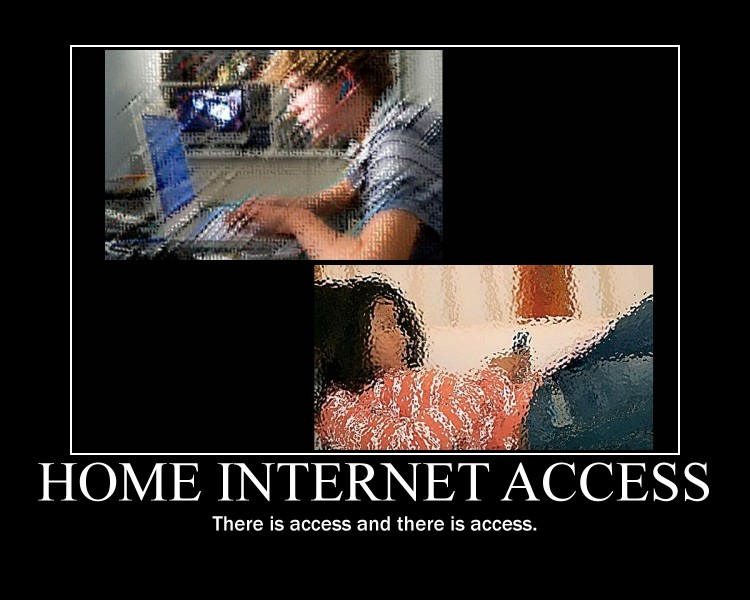Digital equity and home access - it's complicated
 Wednesday, February 3, 2016 at 05:42AM
Wednesday, February 3, 2016 at 05:42AM 
Digital equity is easier to define than it is to solve. It’s about making sure students have equal access to technology like devices, software and the internet, and that they have trained educators to help them navigate those tools. 7 things every educator should know about digital equity. ISTE Connects, January 25, 2016
Kids who don’t have reliable Internet access at home (which includes the use of a laptop or desktop for connecting to the Internet) are “less likely to go online to look up information about things that they are interested in,” according to the report. While mobile devices do provide Internet access, kids don’t seem to use them for the deeper type of informal learning championed by tech advocates: 35 percent of children with mobile-only access look up information often, as compared with 52 percent of kids with Internet at home. What's Lost When Kids Are Underconnected to the Internet? Mind/Shift, February 3, 2016
... what nearly every study of 1:1 programs reveals is that unless students takes devices home, there is little demonstrable impact on learning (Sauers & McLeod, 2012). My sense is that this is true largely because these machines allow students to continue learning outside school. Many learning opportunities, however, depend on home Internet connectivity. Helping to Close the Digital Divide: Connecting Students at Home. Educational Leadership, February, 2015
I am happy to see home Internet connectivity being addressed in educational media on a more frequent basis. And that "home Internet access" is being more broadly defined. Home Internet access to be useful for educational purposes needs to be more than a phone with data services shared by an entire family.
Given both my district's goal of equitable access to resources (part of our cultural proficiency efforts) and its increasing use of digital resources (including replacing textbooks with a learning management system), addressing home Internet connectivity disparities is a high priority - and we have barely begun.
But we have begun. We must.









Reader Comments (2)
Doug - It is great to hear that your district is taking a serious look at this. The risk that exists of widening the digital divide as K-12 education shifts increasingly to leverage (and depend on) digital resources and platforms is significant!
We have seen schools expand opportunity through digital and we have seen some reduce opportunity. Access matters!
More resources you might find useful: Homework Gap Resources
Maybe you'll become a Homework Gap Hero!
Doug - Love that you are shining a light on equity. I think it is the big challenge for ed tech right now - we have to work together to address issues of equity. CoSN is launching a new initiative with this focus.